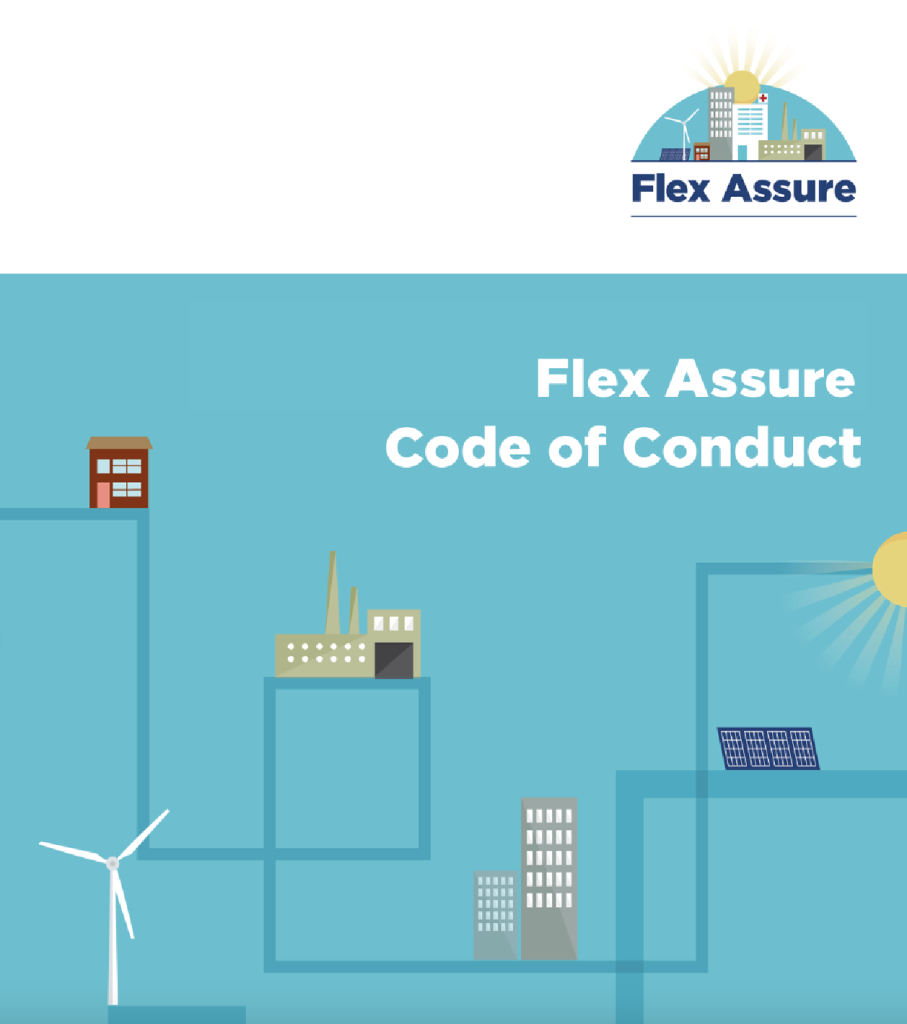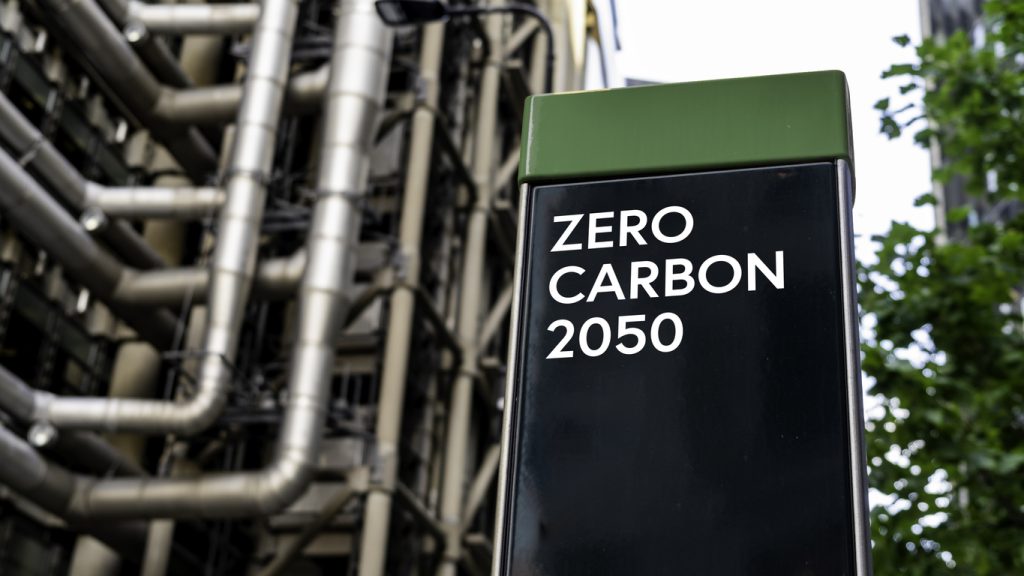Succeeding in Energy Law: An Interview with Rob Broom
As a student fascinated by energy law, Naghmeh was the first choice to interview City LLB alumni Rob Broom, a lawyer in the EY Law Energy Team in London, for Lawbore. Read on to see what challenging questions she put to him!
As someone who is recognised as an expert in the UK electricity market and its regulatory framework, what inspired you to become an energy lawyer and focus on this specific area of law? I am particularly interested in hearing about your motivations and what drew you to specialise in this field.

Growing up, I was always very much aware that energy drives economies and sustains societies, and will continue to become, a decisive factor for the future, particularly as uptake of renewable energy is moving faster and further than projected but radical action is still needed to accelerate the energy transition from fossil-based systems of energy production and consumption to renewable energy sources like wind, hydro and solar, as well as batteries.
Today, where issues such as energy independence, security of supply, cost, and sustainability are of such global importance, energy continues to be right at the top of the political and social agenda. I was always intrigued of the role lawyers had within the field and prior to qualification as a lawyer, actively sought opportunities to work in the sector; I took up a secondment at a UK electricity supplier and also worked for the commodities (Oil, Gas and Coal) energy risk trading desk of a global investment bank. These experiences gave me a real insight into the sector, giving me a grounding in energy related regulations, energy trading agreements for commodities, electricity supply/purchase agreements covering wind (onshore and offshore), geothermal, solar (ground, floating and roof top), biomass, waste, CHP, CCGT and nuclear facilities, and ultimately, the experience only strengthened my desire to pursue qualification in this area and practice as a energy lawyer with a particular focus on renewable project development and regulation.
I particularly took an interest in regulation as my first week of working in the electricity supply sector was one in which the renewables industry was dealing with the aftermath of massive regulatory change in the form of the scrapping of the Climate Change Levy tax exemption and getting to grips with resulting impacts on market conditions for financing and business planning. Anyone working in the sector will be only too familiar with the significance of regulatory change and compliance, for example, on a merger/acquisition, project development/financing, trading or participation in the different electricity schemes in the sector. In these respects, knowledge of regulation and the parameters within which to operate so as to be compliant within it have never been so critical (in whatever field or part of the industry one operates). It became very clear to me early that having a good grounding in regulation, industry codes, scheme rules whilst also working on commercial agreements would be critical in my career.
You have both private practice and in-house experience. I’m intrigued to find out about your experience and whether you observed any notable differences between working in-house and in private practice and how it has influenced your approach to energy law.
Working in-house, you’re providing legal services to the organisation the “legal person” that employs you i.e your sole client. I have found that the key benefit of this is developing a detailed knowledge about the client’s business, culture and goals to a greater degree than may be possible for external lawyers who could be instructed reactively on specific matters. In my experience, the variety of work you’re faced with in-house is also far reaching and often calls for a greater breadth of knowledge than many private practices, where lawyers can specialise and become subject matter exerts in their chosen area. Working in private practice also means you engage with multiple clients on a daily basis.
I feel that I obtained a lot of value from working in-house and bringing that experience to private practice gave me the opportunity to offer a niche specialism, including, amongst others, in grid, power purchase agreements (PPAs), UK scheme incentive mechanisms (e.g. Contract for Difference (CFD), Capacity Market, Feed-in Tariff (FiT), Renewables Obligation (RO) and Renewable Heat Incentive (RHI) schemes) and energy trading, particularly understanding the business context taken in agreements by the client. Above all, I was more aware of commercial issues that would affect my client and their commercial risk appetite of taking certain positions. I’m a big advocate of going into industry and getting experience in-house for these reasons. Following qualification, I have been lucky in getting an opportunity to undertake a 12-month secondment to one of the most powerful players in the European wholesale markets for electricity and gas, sitting in the Commodities Legal Team, providing advice to the Credit Team and traders/originators (and directly negotiating with counterparties) on a range of energy trading agreements. I feel that my previous in-house experience gave me a good grounding to take that secondment on.
As a lawyer in the EY Law Energy Team, you work with a variety of clients including utilities, governments, sponsors, borrowers, and financial institutions. Can you discuss the challenges and opportunities that arise when working with such a varied client base?
In the context of power plant development, ultimately, different project parties will have different objectives, which feeds in to their risk appetite e.g. lenders’ concerns on a financing of a renewable project will primarily involve the technical feasibility and economic viability of the prospective project. They will typically want a lien on the project’s assets, the ability to assume control (e.g. through the exercise of step-in rights) of a project if the project company has difficulties complying with the loan terms, and to ensure that all the key contracts remain in place in one form or another if and when they enforce their security. Risk identification and allocation is of ultimate importance in any project, where the goal is to allocate risks to the parties that are best able to control the risks and that can bear them at least cost e.g. mitigation of construction and commissioning risks of a project can be apportioned to contractors though either a robust EPC turnkey contract with creditworthy entities and high level of liquidated damages or strong completion guarantees. Sponsors want to minimise interference during the construction phase of a project, to retain control of the project for as long as possible in times of hardship and to have the opportunity to cure a default to keep the project alive. Your advice will change depending on the party you are acting for and their objectives in the particular transaction.
In your legal career so far, what has been your most rewarding or memorable project and why?
I have a few memorable projects that I am incredibly proud to have been a part of which I had worked on prior to joining the Energy Law team at EY in March 2022, where I am currently a Manager. These include:

- I advised the Association of Decentralised Energy (ADE) on the establishment and drafting of a landmark demand-side response (DSR) Code of Conduct for DSR aggregators and provided guidance in establishing a governance structure to administer an accompanying compliance scheme called “Flex Assure“. This was a ground-breaking project for the DSR industry (currently unregulated) – up to 16% of the UK’s peak electricity requirement (9.8GW), could be provided by DSR. The Code sets common customer standards DSR aggregators must abide to and will assist in developing this service on the UK’s path to Net Zero. I also sat on the Scheme Oversight Committee for a period of 3 years.
- I have drafted the industry-standard REGO Master Trading Agreement template for Energy UK widely used by Suppliers. My work gave suppliers a common mechanism to trade REGOs (which previously did not have a value) and developed a market for these certificates.
- I was also involved providing advice on the development of a greenfield 1600MW CCGT and the redevelopment/re-power of a 550MW CCGT included in the portfolio, including the plant’s respective bids in the UK Capacity Market (CM) and all governance, consenting, permits and contracts leading to the equity and debt financing of the projects. Following the suspension of the CM as a result of the European General Court’s Tempus Energy judgment (follow the link and click through to read the full insight), my team successfully resisted claims for provisional recovery of State aid granted to the company as a beneficiary of aid under the UK capacity scheme and for declaration as unlawful of conditional CM agreements – pursuant to which the company was entitled to deferred State aid payments. We managed to help the company (and through the company a sizable part of the UK’s baseload capacity) get through a difficult time as a result of a suspension which had rocked the entire industry.
I am incredibly honoured that my work was recognised within the industry and I was shortlisted for the “Remember The Name” Award at the Inspiratia Energy & Sustainability Awards 2021 and I was the Rising Star 2021 Award Winner at Energy UK’s Young Energy Professionals Awards (picture at the event below). To date, I am immensely grateful for the opportunity my superiors had given to me to work on these mandates and also the clients for whom I worked.
You have been recognised as a “Rising Star” by The Legal 500 three years in a row and were also the winner of Energy UK’s Young Energy Professionals Awards – Rising Star 2021. What do you attribute your success and recognition in the industry to?

Put simply, hard work and dedication; I had spent many years paralegalling whilst waiting to get through the “golden gates” of qualification, in addition to my personality to not give up on the dream of qualifying, those years really installed on me a determination to keep growing and learning, and be the best you can be. Out of every situation you can find an opportunity and above all, take development where you can into your own hands. I live and breathe my subject and took it upon myself to educate myself more about the sector by studying and taking exams to become a Renewable Energy Institute (REI) Accredited Green Energy Consultant Expert Certificate Achiever (2019) and REI Accredited Master in Renewable Energy Award Achiever (2022), this knowledge has fed through in my legal work. I am also in the process of studying for an MSc in Renewable Energy Development. I’ve also written around 50 articles to date on energy related issues. I firmly believe that my mentality and desire to continuously grow, push harder and get the best out of every opportunity has served me well. I also should say that I attribute a lot of my success to date to some particular mentors (who know who they are) and great colleagues, to whom I am very grateful. I find that Law is a career that you have to put a lot into in order to get a lot out of it. If you challenge yourself to take items/mandates on and grow, you will eventually build up knowledge and experience – no matter how hard the challenge, it will be all worth it eventually.
In your opinion, what makes for a successful energy lawyer, and what qualities do you possess that help you excel in this field?
The sector itself is divided into many subsets, including oil and gas, power, infrastructure, petrochemicals and renewables, and each of these subsets can be broken down into specific work streams, such as corporate, commercial, regulatory or disputes work. For my journey working on renewable project development and regulation, I have found that the true starting position for anyone who wants to do well in this sector is to have a real passion for the job – it is a lot of work, hours and if you are interested in the sector that takes your curiosity and desire to learn more to another level. Following that, as there is a wide variety of energy work, a lawyer operating in the sector needs to have a good grounding in core agreements and also a grasp of how their work feeds into other project documents (e.g. how a position taken under a PPA might impact risk to be borne onto an O&M or EPC contractor under their respective agreements). Have your client’s priorities first and work with them closely as possible, and never miss a chance to sharpen your legal and business skills, even if this means working on a particular transaction which is a “first of a kind” – it’s actually an opportunity to be taken!
Law can be one of the most rewarding and meaningful careers out there and I’m delighted to have had the opportunity to work in great teams, where there is a collegial spirit where each seeks to empower the other and get the work product out to the best it can be. Seek to add value where you can, be humble (nobody knows everything we’re all continuously learning), use opportunities to learn from those more experienced around you, and keep growing. Finally, after a transaction is completed, take a moment yourself to reflect on the conclusions, what might have been different had a different scenario occurred or if the circumstances were different? Consider also what key things can you take away and bring to your next transaction.
As an expert in the field of energy law, you have no doubt observed the rapidly evolving landscape of the energy sector. How is the transition to renewable energy sources affecting the work of energy lawyers and what legal challenges and opportunities does this shift present?
Currently, our energy markets are going through an exciting transformation into unexplored territory. On the one hand, it is clear that continuous reliance on fossil fuels to meet our needs for energy globally is unsustainable. Even with the current course of action, the earth will continue to warm for many decades to come.

Great Britain’s energy system is already undergoing rapid change. This needs to accelerate over the next decade to be on track for net zero in 2050. The recent unprecedented rise in gas prices only reinforces the need to accelerate the shift away from fossil fuels, strengthening the case for decarbonisation.
Many potential reforms are likely to be forthcoming e.g. changes to the electricity wholesale market to address the marginal pricing challenge, and to introduce locational signals to the electricity market, to enable more efficient operation, reducing day-to-day costs and investment requirements. Decarbonisation, digitisation, cost pressures and geopolitical uncertainty are just some of the forces transforming the energy sector and resources industry. Clients are commonly asking for more comprehensive advise on difficult and cutting-edge power management and smart energy infrastructure and solutions, hedging arrangements e.g. through virtual PPAs, and participating in carbon offsetting and voluntary emission reduction credit trading markets, advice on marrying short-term commercial pressures with the need to reshape their businesses for the future and implications of the energy transition for their operations and business models.
A combination of subsidy erosion or removal, lower auction prices, reduction in embedded benefits and power market volatility has led to an absence of long-term revenue certainty and forced generators and developers to explore new models for their projects. This puts a requirement on lawyers to assist helping navigate these challenges and help get projects off the ground/or keep them operating. It’s a busy time to be an energy lawyer!
In the event of a global recession, many businesses may be faced with difficult decisions regarding their operations and priorities. One area of significant interest is the potential impact on businesses’ sustainability targets, as these goals may be seen as less of a priority in the face of economic challenges. How do you anticipate businesses’ sustainability targets being impacted?
Regulators, consumers and investors are increasing the pressure on businesses to accelerate efforts to make their operations more sustainable. The focus is expanding to include suppliers, as their environmental impact and labour standards weigh on the total of any company’s sustainability footprint.

Corporates are increasingly targeting a reduction of their energy costs at the same time as significantly reducing their environmental footprint, whilst all the while maintaining a continuous business operation. For most CFOs, sustainability is no longer a nice to have, it’s a must have.
If we look back to the last recession, it took place in a different environment andbecame a balancing act between sustainability and costs, with cost winning. Personally, I don’t think we are in the same situation now. Sustainability is so embedded as a key risk throughout the value chain including with institutional investors that it can’t simply be ignored. Companies are seeking to continually make supply chains more sustainable, especially as “scope 3” emissions (i.e. those emissions that are not produced by the company itself, and not the result of activities from assets owned or controlled by them, but by those that it’s indirectly responsible for, up and down its value chain) have become more of a focus. Today, with the demand for sustainability set to increase, embedding sustainability into corporate strategy is essential for any company to remain relevant in the coming years.
Lastly, what advice do you have for aspiring energy law solicitors on staying up to date with legal developments and issues in the sector? Do you have any recommendations for resources?
I would suggest that energy lawyers specifically look out for market consultations from Government on potential sector reforms. On 18 July 2022, the Department for Energy Security and Net Zero (formerly Department for Business, Energy and Industrial Strategy (BEIS)) released a Review of Electricity Market Arrangments (REMA) consultation on options for all non-retail electricity markets in Great Britain: the wholesale market, balancing mechanism (BM) and ancillary services. Everything is on the table from the most radical to the incremental. It is also worthwhile to look out for any Ofgem decisions and consultations. These consultations can be very helpful to see what is on the agenda for change.
About Rob Broom
Rob Broom is a qualified Solicitor in England and Wales, and has worked in the energy law sector for over 10 years. Rob’s practice focuses on advising utilities, governments, banks and financial institutions on all aspects of the energy sector, including oil & gas, electricity generation, renewables, networks and trading. Rob has worked on secondment at a UK electricity supplier and also has experience working for the commodities (Oil, Gas and Coal) energy risk trading desk of a global investment bank. He read law at City University, London and obtained an LLM with Merit in “International Financial Law” from King’s College London where he also received the Associateship of King’s College (AKC). He attended the University of Law where he completed the legal practice course with Commendation. Rob is currently working towards completing an MSc in Renewable Energy Development from Heriot Watt University. He is the co-author of several published articles on renewable energy development and regulation, as well as a frequent presenter/speaker on these issues.
Rob has been named as a “Rising Star” by The Legal 500 2021, 2022 and 2023 for Power (including electricity, nuclear and renewables) and as a “real standout” in The Legal 500 2020 for work in Energy. Rob was the winner of Energy UK’s Young Energy Professionals Rising Star Award in 2021 and was shortlisted for the “Remember The Name” Award at the Inspiratia Energy & Sustainability Awards 2021.

He has also been recognised in Best Lawyers’ as “one to watch” for energy and natural resources law (2023). He is a European Energy Centre Accredited Green Energy Consultant Expert Certificate (2019) and Master in Renewable Energy Award (2022) Achiever.
Naghmeh H.M Shahi is a third year LLB Law student at The City Law School. She is an aspiring solicitor with a keen interest in Commercial law. In terms of her literary work, she likes to focus on advocacy and public interest projects that take human interests into consideration, make a call to action, and open doors to constructive discourse.
